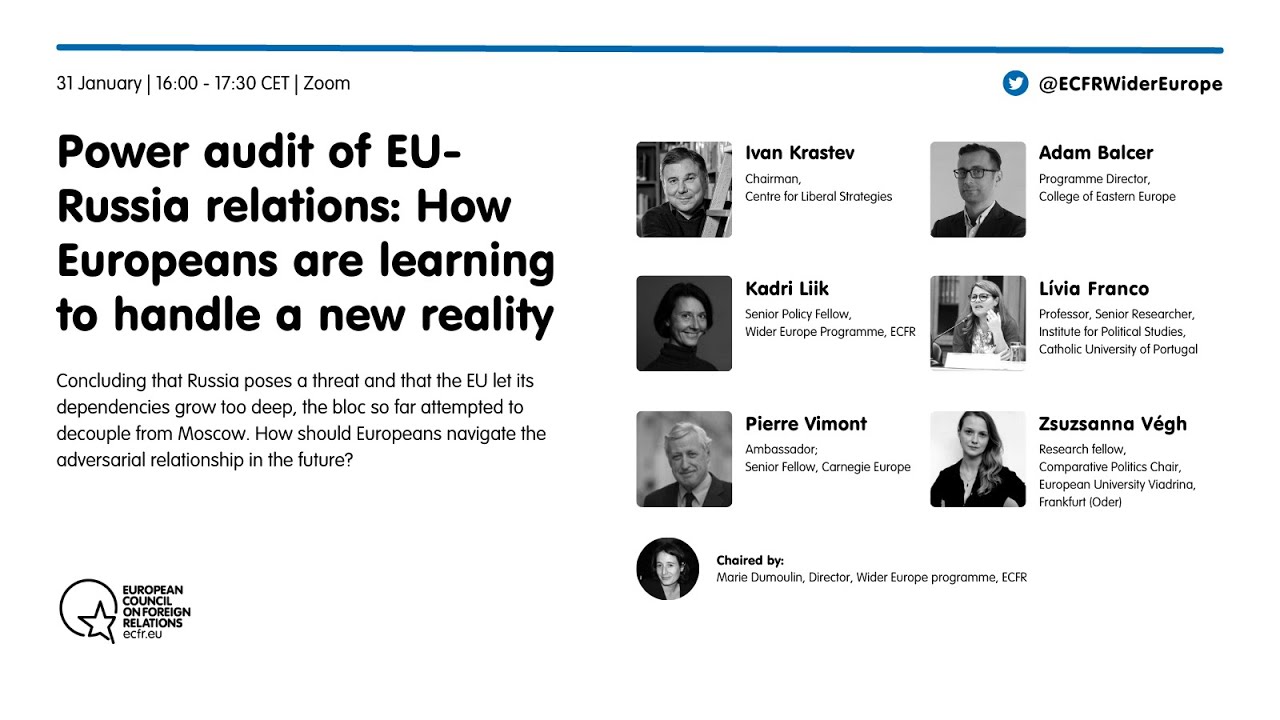Power audit of EU-Russia relations: How Europeans are learning to handle a new reality
Concluding that Russia poses a threat and that the EU let its dependencies grow too deep, the bloc so far attempted to decouple from Moscow. How should Europeans navigate the adversarial relationship in the future?
Guests
- Ivan Krastev, Chairman, Centre for Liberal Strategies
- Kadri Liik, Senior Policy Fellow, Wider Europe Programme, ECFR
- Pierre Vimont, Ambassador; Senior Fellow, Carnegie Europe
Joining as commentators:
- Adam Balcer, Programme Director, College of Eastern Europe
- Lívia Franco, Professor, Senior Researcher, Institute for Political Studies, Catholic University of Portugal
- Zsuzsanna Végh, Research fellow, Comparative Politics Chair, European University Viadrina, Frankfurt (Oder)
Chaired by
Marie Dumoulin, Director, Wider Europe programme, ECFR
Russia’s war on Ukraine profoundly changed the way Europeans view their relationship with Russia, forcing the bulk of the EU policymakers to conclude that Moscow poses a threat to their security. Now, the bloc will have to learn to navigate this new reality. The recent ECFR survey of decision-makers across the EU and Kadri Liik’s Power Audit shed light on the vulnerabilities and the strengths of Europeans’ relationship with Russia.
Liik was joined by Pierre Vimont and Ivan Krastev to dive deeper into the views from national capitals and discuss the shifts in European thinking. They analyzed the robustness of European unity and explored what the future holds for the bloc’s Russia Strategy. Questions addressed in the webinar included: What poses challenges to European consensus? What guides the EU’s Russia policy? How can the EU maneuver the adversarial relationship with Russia in the longer-term?

